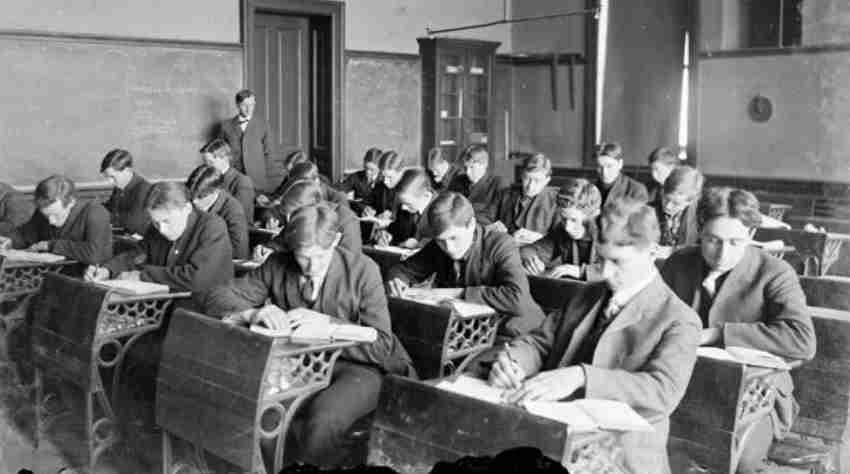Ever wondered when was the first exam ever held on the face of this earth? What was the reason to start this system of evaluation in the first place? What was the method used for evaluation?
Well, to be honest, by looking at early pages of history, it roots its origin from China (now you know why they are so good at it). Ancient China was the first known country in the world that implemented a standardized test, where it was held on fixed dates as predetermined by the governing body. It was fixed in terms of scope, difficulty and format, i.e. purely standardized. Today’s modern high-stakes tests are based on the same format. Back then it was called as the imperial examination and it was used for hiring government personals. It was established by the Sui Dynasty in 605 AD and was later abolished by the Qing Dynasty 1300 years later in 1905.
We can give credit to the British colonialism for the widespread acceptance of the modern evaluation systems around the world. Although they had adopted this system in 1806 for recruitment to Her Majesty’s Civil Service, it got mired into a lot of controversies and pitfalls with preferment, patronage or purchase of candidates. The British consuls in China observed that the meritocratic system of China and the development of rightful meritorious candidates was the reason why the Chinese empire was able to withstand for a very long time. The British taking a leaf out of its Chinese compatriots started recruitment of candidates with a solid general education on the basis of merit for the Company’s territories in India. It was called as the ‘Indian Civil Service’ in 1806. In 1855, a Civil Service Commission was set up to oversee the recruitment and end patronage.
The Northcote-Trevelyan model of meritocratic examination was able to remove corruption and also deliver public services even in times of two world wars. Looking at its success, it was later implemented into general education tests in the form of written tests, multiple choice questions and more. It influenced the administration system of the Commonwealth countries and later on the rest. The United States has the Pendleton Civil Service Reform Act in the similar fashion. The transition from oral to written form of test in U.S. occurred under the influence of educational reformer Horace Mann. It also expanded into the sciences and humanities curricula which are currently observed.
So, for all the social media trolls hounding for Henry Kimball Hadley (1871-1937), a symphony orchestra conductor whose photo is being widely circulated through the social media platform, I have only one thing to say. Let the Order of Merit award winner Rest in Peace.









